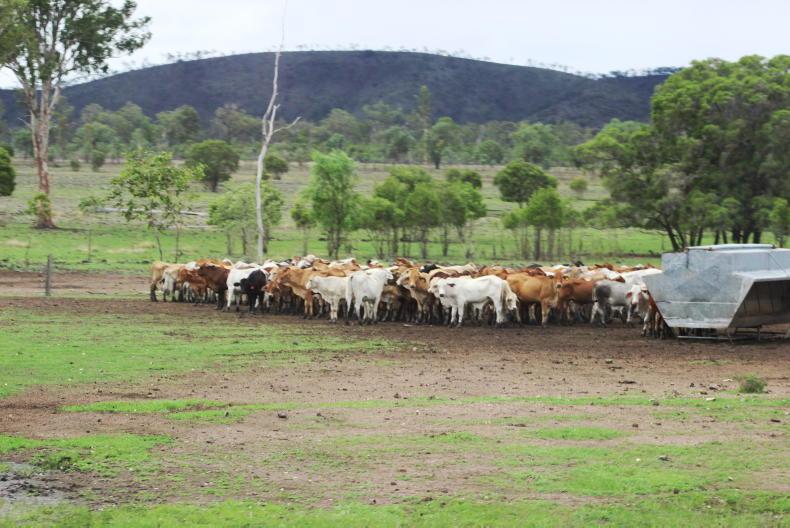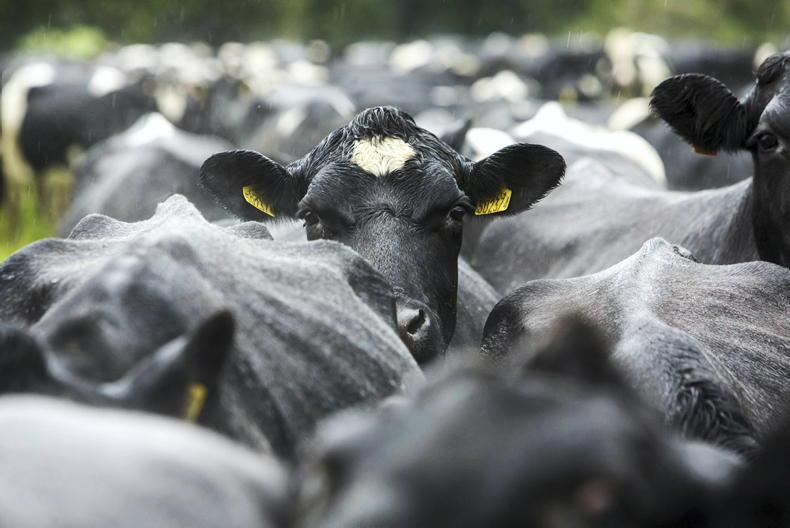Australian lamb exports to the UK almost trebled in August to 1,028 tonnes compared with 357t in August last year, while beef exports increased fourfold to 300t compared with just 77t in August 2022.
This is the third month of data released by Meat and Livestock Australia (MLA) since the UK trade deal came into effect and a clear trend is emerging on volumes of beef and lamb heading to that market.
This makes the UK market more attractive for Australian exporters and it is a clear target, but it isn’t the only factor that is driving Australian beef and sheepmeat exports in the second half of 2023.
The volume of Australian beef and lamb available for export has also increased dramatically in 2023.
Lamb
Lamb exports increased by 21% to 31,779t in August, the highest monthly volume on record and a substantial increase on 2022, which was also a record year, according to MLA.
Most of these extra exports went to China, with volumes up 47% to 7,310t in August, while sales to the US were up 10% year on year to 6,397t.
With just 1,028t being exported to the UK in August, that now makes it the 10th biggest export market for Australian lamb in 2023 year to date at 5,352t and if the trend of the past three months continues, the UK will move further up that table.
Beef
Compared with lamb, Australian beef exports to the UK are miniscule and the spectacular growth is coming from a particularly low base.
The total beef exports for August were 102,352t, the highest monthly total since December 2019, according to MLA.
The US is the biggest export market, taking 25,760t, followed by China with 19,991t, though volumes to South Korea fell 6% to 17,304t and there was a substantial fall of 23% in exports to Japan, which were down to 14,435t compared with August 2022.
These four markets accounted for three quarters of all Australian beef exports and while volumes to the UK are tiny in this context, the important point to note is that they are growing and will increase further.
Competitive pricing
Australian agriculture has to cope with regular prolonged droughts which lead to a reduction in livestock numbers, followed by a period of low supply as herds and flocks are rebuilt.
The most recent period of herd rebuilding has just concluded and Australia is now operating at close to capacity.
The abundance of supply has resulted in a dramatic fall in the farmgate price paid by factories for beef and lamb.
Bord Bia reports the most recent lamb price for week ending 2 September at the equivalent of just €2.77/kg, down from the equivalent of €4.77/kg last year.
This makes Australian lamb very competitive in the UK market when it isn’t subject to a tariff compared with an Irish price of €6.18/kg or the domestic British price of €6.50/kg equivalent.
On beef, MLA reports the average value of grown steers at the factory is currently the equivalent of €3.34/kg, down from the equivalent of €4.14/kg this time last year.
It is these latter points that should be of concern to Irish and indeed British farmers. There has been a rebound in Irish beef prices in recent weeks and a surge in factory prices in the North and Britain, driven very much by the dip in British cattle supply.
With the UK being a net beef importer of beef and Australia an exporter, trade will only increase over the coming months.
One meat trader reported to the Irish Farmers Journal last week that he was being quoted Australian prices for deliveries in January 2024 and while buyers may not necessarily take up all the Australian offers, they will use them when negotiating prices with Irish suppliers.
If supplies are tight in Britain for any length of time, it will make the Australian offering even more lucrative.
On lamb, the exceptional prices and the fact that the UK can export unlimited quantities of lamb to EU markets means the impact of Australian supplies won’t be confined to just the UK and UK suppliers.
A further twist lies ahead - the EU will likely conclude a trade deal with Australia before the end of this year, so Australian competition for Irish beef and sheep producers will be an ongoing reality into the future.










SHARING OPTIONS